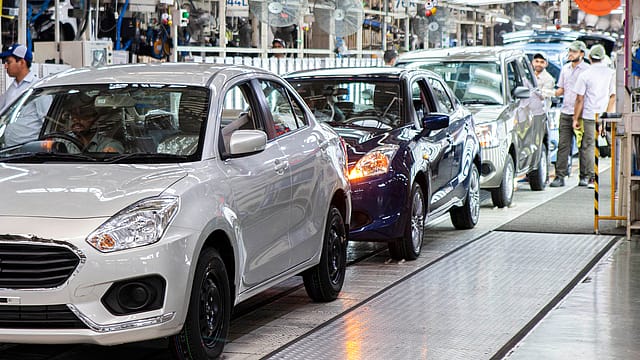Only 17% of total cars fitted with 6 airbags: Govt
ADVERTISEMENT

The ministry of road and transport and highways on Wednesday said that out of the 3,27,730 passenger cars sold in India, only 17% of cars accounting for 55,264 units are fitted with six airbags. The ministry quoted the data from the society of Indian automobile manufacturers (SIAM). The ministry said that the existing airbag manufacturing capacity in the country is 22.7 million and an estimated increase in production for next year is 37.2 million while quoting data from the automotive component manufacturers association.
The development comes months after Nitin Gadkari, minister of road and transport, announced the installation of six airbags in all passenger vehicles beginning October 1, 2023. On January 14, 2022, the government proposed that vehicles of category M1 that are manufactured after October 1 this year, will be fitted with two side/side torso airbags, one each for the persons occupying front row outboard seating positions and two side curtain/tube airbags, one each for the persons occupying outboard seating positions in order to enhance safety for the vehicle occupants.
The comments and suggestions by various stakeholders of the automotive industry are under consideration before the ministry. In June 2022, Gadkari said that though the government was determined to make six airbags mandatory for cars, some companies were "constantly making opposition". "We want to save the lives of the people and that is the reason we need cooperation from the stakeholders," he said.
“The fixed cost of an airbag is a function of the volume of the vehicle model produced and shall be determined by market forces. However, the approximate variable cost for 4 airbags [2 side airbags and 2 curtain airbags] is estimated to be around ₹6,000/-,” Gadkari said on Wednesday.
The production-linked incentive (PLI) scheme for automobile and automobile components manufacturers provides incentives for airbag applications i.e. inflators for airbags, airbag electronic control units and sensors for airbags. The Centre’s decision to mandate a minimum of six airbags, along with rear seat belt alarms, is likely to push the cost of all vehicles, especially economic models, higher, thereby putting huge pressure on auto companies that are yet to recover from Covid and chip shortage crises.
Amid dwindling macroeconomic situations and higher input costs, major domestic manufacturers have hiked automobile prices beginning January 2023. Tata Motors will hike the prices of its entire range of commercial vehicles by 2%, whereas Maruti Suzuki has also decided to hike prices across its entire range of vehicles starting January 2023. The company has not revealed by what percentage it is planning to hike the prices. Luxury automobile manufacturers Mercedes-Benz India and Audi India also announced a hike in the price across their entire model range by up to 5% and 1.7%, respectively.